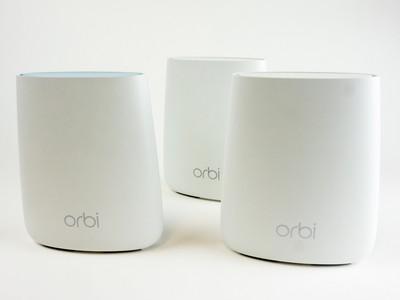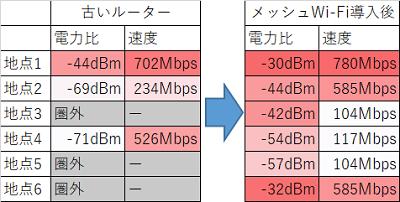
My nephew told me that the internet was slow and I couldn't connect, so I solved it with mesh Wi-Fi.
The ONU integrated Wi-Fi router currently in use. IEEE 802.11ac is a type that extends with ExpressCard
It's been about 12 years since I moved to the single-family house where I currently live, and during that time, the Internet has a contract for an optical line. Initially, it was operated with a combination of ONU and Wi-Fi router (2.4GHz band only) with a 100Mbps line, but when the line was switched to gigabit service a few years ago, ONU was rented Wi- It was switched to the one with integrated Fi router.

From the time I started using this ONU-integrated Wi-Fi router, complaints from my family that I couldn't connect to the Internet began to increase. Apparently, the integrated Wi-Fi router does not seem to be very compatible with home due to the location and directivity of radio waves, and in the 5 GHz band it is not possible to cover every corner of the house of a single house, and the 2.4 GHz band However, the area has become smaller than the previous router.
2nd floor drawing (left) and 1st floor drawing (right) of my house. The alphabet is the location of routers and satellites.Numbers are measurement points such as speedMy house is a two-story building, and an ONU integrated Wi-Fi router is installed at point A. I checked with the measurement app how much the radio wave of the ONU integrated Wi-Fi router actually covers my home.
| Power ratio | speed | |
| Point 1 | -44dBm | 702Mbps |
| Point 2 | -69dBm | 234Mbps |
| Point 3 | Out of service | - |
| Point 4 | -71dBm | 526Mbps |
| Point 5 | Out of service | - |
| Point 6 | Out of service | - |
Looking at the results, although there is a certain amount of power ratio only in the area of about two-thirds of the second floor and directly under the room on the first floor, the other areas are out of service and radio waves are too much to measure. It was weak. This is useless, so crawl a wired LAN cable from point A on the 2nd floor to point C, which is the living room on the 1st floor, and connect the old Wi-Fi router that was used in combination with the ONU before. By expanding the coverage area with this, it has been in operation for several years.
This is the network environment before the introduction of Orbi Micro, but recently there have been more complaints that it cannot be connected to the Internet. This is because nephews and nieces have grown up to have smartphones and tablets, and have come to use them all over the house. In other words, the number of Wi-Fi users and places of use has increased.
In addition, there was a concrete complaint that "using a microwave does not connect to the Internet." Certainly, the frequency band of the old router installed on the 1st floor is only 2.4GHz band, and it batting with the radio wave of the microwave oven. The location is only a few meters away, so it's likely to be affected. Moreover, I've been using the Wi-Fi router since I moved, so I've been a player for 10 years. It's about product life.
